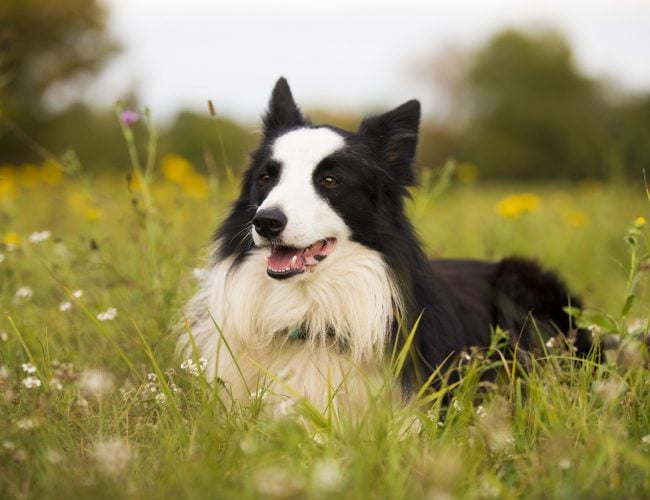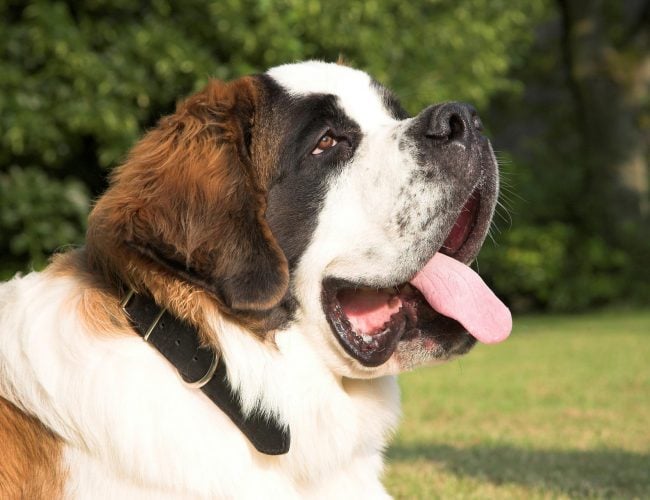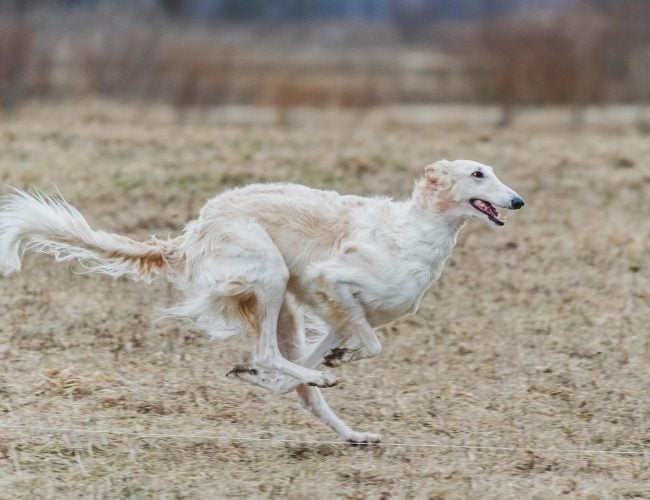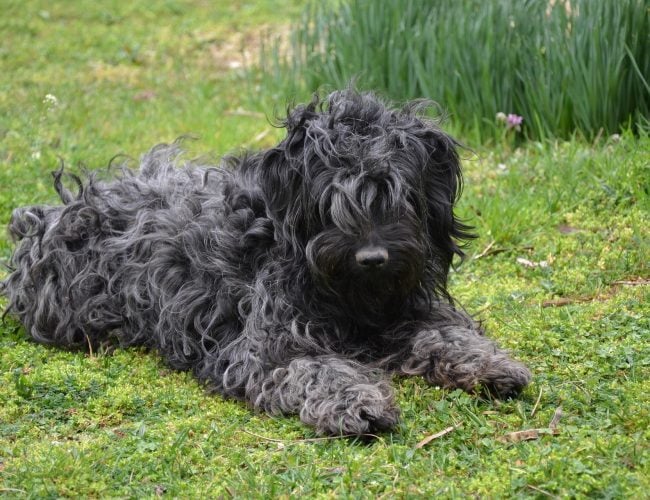
Golden Retriever
Breed Group: Sporting Group
Size Group: Large Dog Breeds
Origin: United Kingdom
Height: 23”-24” (male) 21.5”-22.5” (female)
Weight: 65-75 lbs (male) 55-65 lbs (female)
Color: Dark golden, Golden, Light golden
Lifespan: 10-12 years
Temperament: Friendly, loving, loyal, outgoing
Set Your Pup Up For Success
Overview
The Golden Retriever truly is man’s best friend. Wonderful with family, an unparalleled service dog, and an active member in search-and-rescue missions this pup just has so much love to give. When your pup is little, always watch interactions with children. This breed tends to look at children as siblings and can play too rough with them in the beginning when unattended.
Goldens have never met a pond, puddle or mud pit that isn’t calling their names. This breed has lots of energy and an innate puppy joy that they bring into adulthood. Everything has potential to be a game with this pup. This breed will meld to his environment, homes that have firm and fair rules will have a pup that is a well-mannered, jubilant family member. Houses that are lacking in training and boundaries will create a dog that has many unattractive qualities that are difficult to break.

Smartest Dog Breeds
- If you need someone to take the SATs for you, we have you covered
- Intelligence is something you're born with. And these ones were.
EXPLORE SMARTEST DOG BREEDS
Celebrity Owners
Jennifer Aniston, Adam Levine, Ryan Reynolds & Blake Lively, Ben Affleck, Conan O’Brien, Emma Stone, Betty White, Oprah, Cameron Diaz, George Clooney, James Marsden, David Hasselhoff, Shakira, Lisa Vanderpump, Jackie Chan, Nick Jonas, Colbie Caillat
Fun Facts
An Australian golden retriever named Charlie holds the record for “Loudest bark”.
Health
Goldens are typically very healthy dogs. Some health conditions to be aware of include juvenile cataracts, pigmentary uveitis, progressive retinal atrophy, subvalvular aortic stenosis, hip dysplasia, elbow dysplasia, entropion, trichiasis, cardiomyopathy, von Willebrand’s disease, allergies, pyotraumatic dermatitis, osteochondritis dissecans, hemangiosarcoma, lymphoma
While you always hope your pet will live a long and healthy life, it is always a good idea to invest in pet health insurance.
Keeping your dog’s mouth clean and problem free goes a long way to your pup’s overall health. Dental hygiene can be the cause or can be the byproduct of other serious health issues.
Visual inspections can be performed to keep track of the signs of potentially waning oral health. These signs can be anything from bad breath to abnormal chewing to loss of appetite.
Keeping ahead of these warning signs can pay dividends. A preventative approach can delay and stop many of the common dental problems from arising.
Oral health can be tackled in five basic steps:
- Brushing your dog’s teeth to prevent an undesirable buildup of plaque
- Feed your dog a diet where the high quality dog food has dental benefits
- Regularly give your dog dental toys and treats
- Use mouthwash, to help where brushing misses
- At the sign of any abnormalities, consult a vet. You can even do it virtually, from the convenience of your home.
Dogs are just like humans in that they can experience anxiety. The degree to which they are susceptible to anxiety and how they deal with anxiety is breed specific. Left unchecked, initial signs of anxiety could give way to an anxiety disorder. The symptoms of anxiety disorders can lead to a myriad of behavior issues.
Knowing the signs and symptoms will best equip you to keep ahead of it and to nip it in the bud at the earliest signs. There are options available to help with anxiety.

Family Dog Breeds
- They have the right patience and temperament for your family
- Vigilant and loyal, these dogs will protect their own
EXPLORE FAMILY DOG BREEDS
Grooming
Goldens should be brushed at least once per week. Brushing removes dead hair, hidden debris, and tangles. They will go through two seasonal sheds where brushing every day will help to maintain the shed from covering your entire house. Bathing your pup during the shedding periods can help move away additional loose fur. Do not brush your dog until the coat is completely dry. Be prepared to wash your pup regularly throughout the year. If allowed, these pups will get dirty often. When your pup goes swimming, he may not necessarily need a full bath but always rinse him afterwards to help remove lingering bacteria.
As with all dogs keep your pup’s eyes and ears clean and clear of debris, being mindful that dogs with floppy ears are prone to ear infections. Keep your pup’s nails trimmed regularly and brush his teeth several times per week.
Cost
$1,000 – $3,500
Exercise
This breed needs at least an hour of exercise per day. As with many breeds, Goldens will become destructive if they are not getting adequate daily activity. Long walks, trips to the park and playing games in the backyard will all help your pup get energy out. These pups love to run but are prone to joint issues, talk to your vet before you start taking your pup out on long strenuous runs.
Nutrition
Your full-sized Golden will eat around 3 cups of food per day over 2 meals. The exact amount of food your dog will need will vary depending on age and activity level. This breed is prone to obesity. Keep an eye on your pup’s weight as obesity leads to a host of other health issues. Avoiding feeding your dog table scraps is advised.
We’ve taken a look at some premium dog foods, high in nutrition here.

Hypoallergenic Dog Breeds
- Low shedding dogs that will attack the allergies less
- These dogs come in all shapes, sizes and temperaments
EXPLORE HYPOALLERGENIC DOG BREEDS
Training
As with all dogs, early socialization with humans and other dogs is essential. These dogs can be an incredible breed, but training is an absolute must. Without proper boundaries they will develop unsavory qualities like barking, digging, stealing food, chewing on furniture and accidents in the house.
Goldens are eager to please and will thrive in positive reinforcement training. Be sure to work on a quiet command to dissuade unnecessary barking.
Proper training is essential to ensuring the safety of your dog and those around you. Having your dog come when they should, and in general having them listen is something you want to address early in your pup’s life, as it will pay dividends down the line. There are many tried and true training programs to accomplish this training – faster and better than you might think!
Unless you’re living on a farm, or have the space, a yipping dog, or one that barks all day when you are gone could be an issue with the neighbors and/or landlord. Historically, dogs would bark to communicate with the rest of the pack when hunting and bark as a warning shot to predators eyeing up their flock. Barking is deep rooted in dogs and manifests itself in many ways and for a variety of reasons.
Just like any habit or instinct, there are effective ways you can train this issue away.

Cute Dog Breeds
- I mean, come on. These dogs will have you wanting one.
- Guaranteed to make you instagram famous (or at least your pup!)
EXPLORE CUTE DOG BREEDS
Supplements
A solid Glucosamine Supplement for hips and joints will go a long way to helping your furry friend.
Other helpful supplements include full-spectrum hemp oil or CBD oil. Fish oil skin and coat supplement.
Ensuring a comprehensive preventative vitamin and mineral plan is essential to keeping your dog healthy. Truth is, there are vitamins and minerals that your dog needs, but doesn’t produce naturally. While many of these vitamins and minerals can be found in your dog’s current diet and dog food, the question becomes, are there enough vitamins to ensure they aren’t deficient.
Poor nutrition can lead to some of the most common health issues, such as weak joints, compromised immunity, increased allergies, and low energy.
Vitamins play a vital role in your pet’s health and overall life expectancy. Here are some multivitamin and joint relief options.
As regulations around marijuana have eased, the emergence of CBD oils for humans and dogs have sprung up.
Just to begin to dispel the negative stigma, CBD extract comes from Hemp, marijuana’s cousin. Unlike its cousin, there are no psychoactive qualities in CBD oil. An emerging number of clinical and institutional studies have shown the wide variety of healing qualities in CBD, including pain management, and the containment of seizures and epileptic episodes.
Explore this remedy further to see all the health benefits that have transformed the lives of so many dogs to date.

Hunting Dog Breeds
- Energy and a willingness to get the job done, these dogs love outside
- Their traits and unique skillsets have them separated from the pack
EXPLORE HUNTING DOG BREEDS
The Good
Excellent with children
Easy to train
The "Ruff"
Prone to bad behavior if untrained
High shedder

Companion Breeds
- Their loving and caring spirit makes them great compadres
- A passion for giving back to their owner is in their DNA
EXPLORE COMPANION DOG BREEDS
All Dog Breeds Lists
- From family to hairless to sled dogs, we have you covered
- All breeds from the ones you know, to the ones you don't
EXPLORE DOG BREEDS








